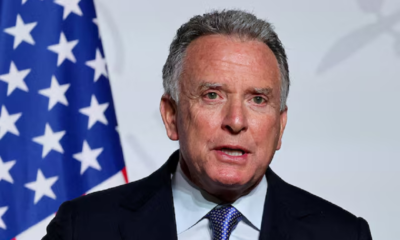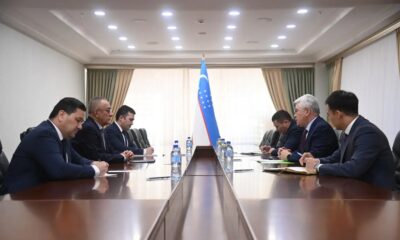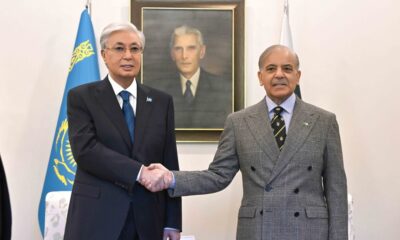Latest News
Officials cry foul over ethnicity and tribe categories for ID cards

The Afghan National Statistics and Information Authority (NSIA) has allegedly classified a number of ethnic groups and tribes into categories – in a move met with a strong backlash by Afghans including some government officials.
The categorized list of ethnicities and tribes is included in an online platform for registration for the new electronic national ID cards.
Based on the list, all Pashtuns in Afghanistan are classified into one ethnic group but the rest of the groups such as Tajiks, Hazaras, and Uzbeks are each divided into several tribes.
Some politicians believe that the NSIA’s list “deliberately” fuels disunity among the people of Afghanistan as the organization has categorized ethnic groups based on their “villages, districts and tribes.”
Second Vice President Sarwar Danish said the list lacks “scientific and practical” elements and this in itself could lead to disputes in the country.
“Hasty decisions would question the government and create divisions and mistrust among our people,” Mohammad Hedayat, the head of Danish’s media office said.
Meanwhile, former Foreign Minister Salahuddin Rabbani stated that the NSIA has intentionally planned to divide ethnicities based on districts and villages.
Atta Mohammad Noor, Chief Executive of Jamiat-e-Islami Party, claimed that the NSIA is not “aware of the difference between an ethnicity and place of residency.”
“This government organization is not yet aware of this important fact that there is a huge difference between an ethnicity and the residence of a group, and you can never count the name of the location as the ethnicity of a specific people,” said Ahmad Afzal Hadid, Head of Balkh Provincial Council.
Abdullah Abdullah, Chairman of the High Council for National Reconciliation, also spoke out against the NSIA’s decision and called the list a “mistake.”
Abdullah called on the organization to rectify the issue.
The NSIA, however, claimed that its decision was made at the request of the people.
“This decision was made as per the request of a number of tribal elders and the interpretation of the third part of Article 4 of the Constitution,” said Roeina Shahabi, the spokesperson for the NSIA.
Shahabi stated: “According to the statement (tribal elders) requested through various official sources the inclusion of their tribes in the electronic ID card, which was not clearly mentioned in the Constitution.”
Article 4 of the Constitution reads: National sovereignty in Afghanistan shall belong to the nation, manifested directly and through its elected representatives. The nation of Afghanistan is composed of all individuals who possess citizenship of Afghanistan.
The nation of Afghanistan shall be comprised of Pashtun, Tajik, Hazara, Uzbek, Turkman, Baluch, Pachaie, Nuristani, Aymaq, Arab, Qirghiz, Qizilbash, Gujur, Brahwui, and other tribes.
The word Afghan shall apply to every citizen of Afghanistan. No individual of the nation of Afghanistan shall be deprived of citizenship. Citizenship and asylum-related matters shall be regulated by law.
Latest News
Afghanistan facing deepening hunger crisis after US Aid Cuts: NYT reports

Afghanistan has plunged deeper into a humanitarian crisis following sharp cuts to U.S. aid, with child hunger at its worst level in 25 years and nearly 450 health centers forced to close, the New York Times reported.
According to the report, U.S. funding — which averaged nearly $1 billion a year after the Islamic Emirate takeover in 2021 — has largely evaporated following the dismantling of the U.S. Agency for International Development (USAID) under President Donald Trump.
The World Food Program (WFP) estimates that four million Afghan children are now at risk of dying from malnutrition.
The aid cuts have hit rural areas particularly hard, leaving families without access to basic health care. In Daikundi province, the closure of local clinics has been linked to preventable deaths during childbirth and rising child mortality.
Nationwide, more than 17 million Afghans — about 40 percent of the population — face acute food insecurity, with seven provinces nearing famine conditions, the report said.
The crisis has been compounded by mass deportations of Afghan refugees from Iran and Pakistan, deadly earthquakes, and ongoing drought. While other donors and Afghan authorities have tried to fill the gap, their efforts fall far short of previous U.S. assistance, the NYT reported.
Humanitarian groups warn the impact will be long-lasting. Researchers cited by the New York Times say sustained malnutrition could damage an entire generation, with consequences that cannot be reversed even if aid resumes in the future.
However, the spokesperson of the Islamic Emirate, Zabihullah Mujahid, considers the findings of this report to be inaccurate and said that the situation in Afghanistan is not as dire as it is portrayed, and that the country’s situation is moving toward improvement.
“In our view, this report is not correct. We have gone through difficult times and experienced problems such as a humanitarian crisis. At one point, we suffered very heavy casualties and our people faced many difficulties, but now the situation of most people is improving. The country’s economy is moving in a positive direction, to some extent job opportunities have been created for unemployed people, efforts are still ongoing, and Afghanistan’s economic resources have been revived,” said Mujahid.
Latest News
Uzbekistan, Kazakhstan discuss cooperation on Afghanistan
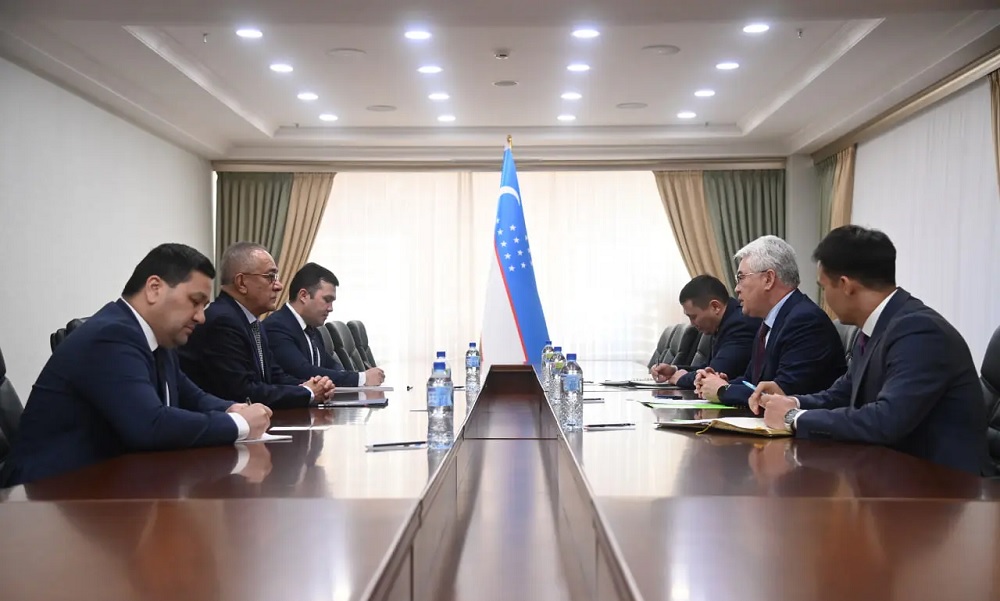
Ismatulla Irgashev, Special Representative of the President of Uzbekistan for Afghanistan, met on Tuesday with Beibut Atamkulov, Kazakhstan’s Ambassador to Uzbekistan, to discuss bilateral cooperation on Afghanistan.
The two sides highlighted their commitment to maintaining regular dialogue aimed at addressing the Afghan issue, according to a statement issued by Uzbekistan foreign ministry.
Atamkulov praised Uzbekistan’s efforts to help shape a unified regional position on Afghanistan.
The meeting also included discussions on involving Afghanistan in regional connectivity initiatives, particularly the implementation of the Trans-Afghan railway project.
Officials described the meeting as constructive and reaffirmed mutual interest in further developing practical cooperation between Tashkent and Astana.
Latest News
Pakistan, Kazakhstan stress importance of stability in Afghanistan, support regional projects
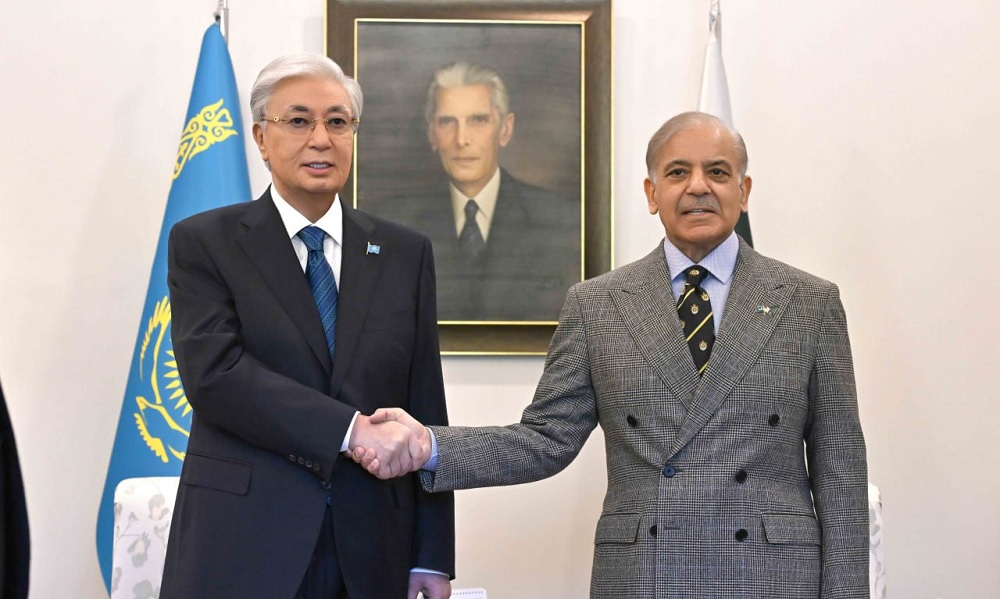
Pakistan and Kazakhstan have highlighted the importance of peace and stability in Afghanistan, calling it a key requirement for advancing regional cooperation. The remarks came in a joint statement issued after Kazakh President Kassym-Jomart Tokayev’s visit to Islamabad.
The two leaders stressed that Afghan territory must not be used for activities that threaten the security of other countries. They also agreed that integrating Afghanistan into regional economic and connectivity initiatives would benefit both the Afghan people and the wider region.
Islamabad and Astana reaffirmed their commitment to expanding international multimodal transport corridors linking the two countries, including the Kazakhstan–Turkmenistan–Afghanistan–Pakistan, Kazakhstan–Uzbekistan–Afghanistan–Pakistan, and Kazakhstan–Kyrgyzstan–China–Pakistan routes.
Prime Minister Shehbaz Sharif welcomed President Tokayev’s proposal to link Central and South Asia through the Trans-Afghan railway corridor. Both sides instructed their relevant authorities to study the development of the Kazakhstan–Turkmenistan–Afghanistan–Pakistan railway line.
-

 Sport4 days ago
Sport4 days agoAFC Futsal Asian Cup: Afghanistan to face Iran in crucial Group D clash
-

 Sport3 days ago
Sport3 days agoAFC Futsal Asian Cup 2026: Final eight confirmed
-

 Sport3 days ago
Sport3 days agoAfghanistan in new kit for T20 World Cup warm-up against Scotland
-

 Sport4 days ago
Sport4 days agoIran see off spirited Afghanistan to finish top of Group D
-

 Sport2 days ago
Sport2 days agoJapan trumps Afghanistan 6-0 in AFC Futsal Asian Cup quarter-final
-

 Sport1 day ago
Sport1 day agoHosts and heavyweights advance as AFC Futsal Asian Cup reaches semifinals
-
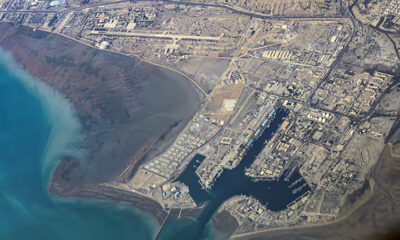
 Regional4 days ago
Regional4 days agoGas leak caused blast in Iran’s Bandar Abbas, Iranian media say
-

 International Sports3 days ago
International Sports3 days agoPakistan to boycott T20 World Cup group match against India




